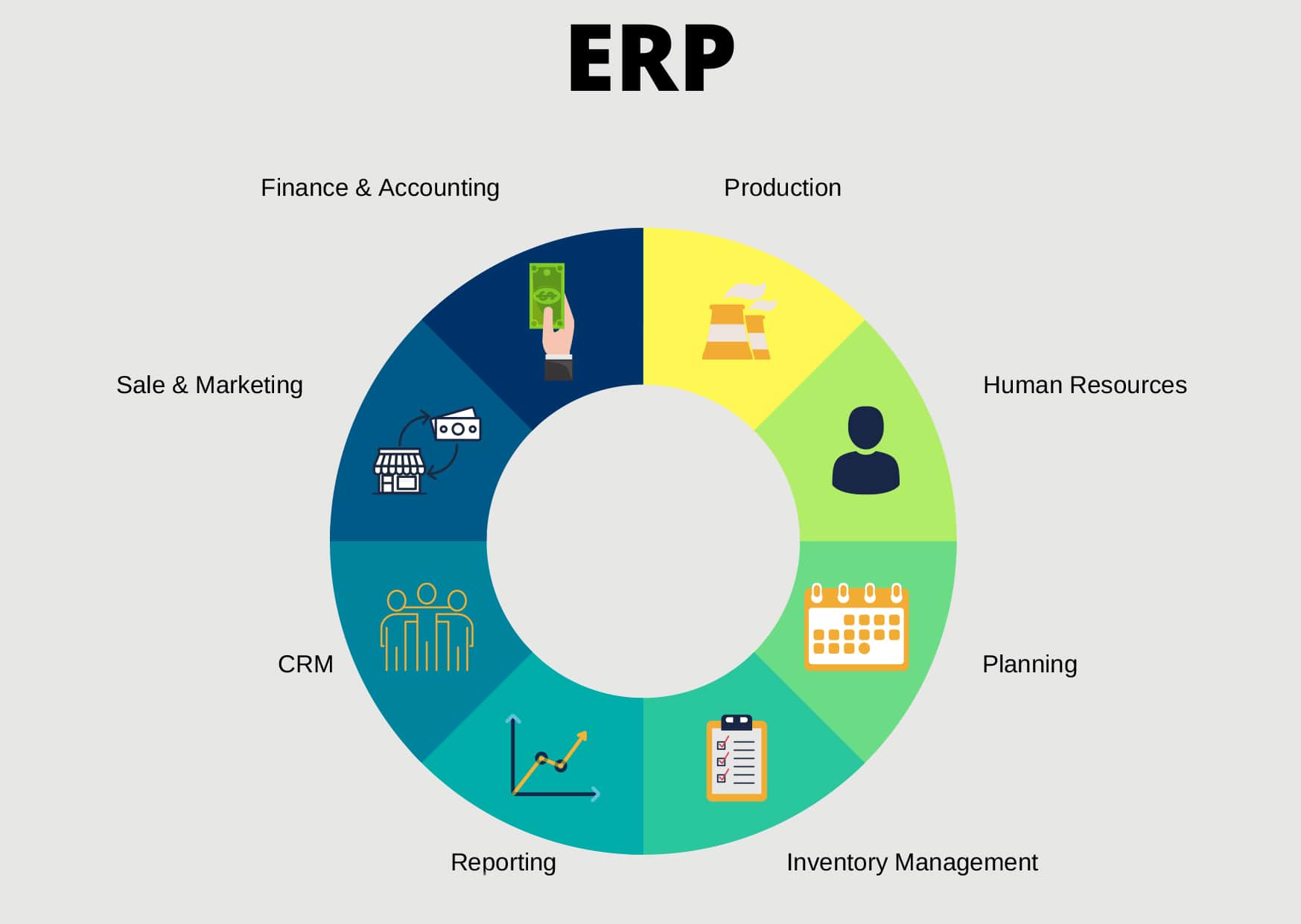
Top 6 differences between ERP and GRP
24 May 2020
The ERP and GRP systems focus on different stages of a production. The first one focuses on every stage of product life cycle (manufacture, storage and selling). And the second one focuses on the group level organising, the internal coordination and the assets operation. But what does that mean?
Enterprise resource planning
ERP is an acronym for «Enterprise resource planning«. This is an integrated computer-based system used in the management of head business operations in real time. It’s referred to as a category of business management software. Making possible the collecting, storage, management and interpretation of data within the business activity thanks to a suite of integrated applications.
This system provides a consolidated and periodical update of the processes that happen in the business. Keeping track of every resource (cash, raw materials, production capacity…) and the status of business fidelity (purchase orders, payroll…).
The applications integrate different departments within the company, such as: manufacturing, purchasing, sales, accounting… they all provide the data that facilitates the functioning circulation of the business.

IT investments have become the largest category of capital outlay in the USA, for example. This resource planning system integrates different managerial systems that facilitate error-free transactions increasing the company’s efficiency.
Nevertheless, developing this kind of system diverge from traditional system development. These run on a type of computer hardware and network configurations, using a database as an information repository.
At its most basic level, this software can integrate different functions into one complete system to simplify processes and information across the entire company.
Government resource planning
GRP stands for «Government resource planning«. These systems are particularly needed for government-driven business groups and integrate office automation system for them.
This kind of software is designed for the unique requirements of public financial management, where the budget is the legal realisation of government intentions. The structure of the software, even the core algorithms and main interfaces, resemble.
Private or public, both systems are used to improve productivity and the performance of businesses. The comparison of private vs. public of the softwares implementations show that the main factors influencing success in the public sector are mostly cultural.
For the management of a business, they must focus on optimising their assets when it comes to investment information (planning, decision, budget…) and the effect is to implement a new kind of strategy in order to manage these operations.

Top 6 Differences
The management of businesses are different in respect of group and individual enterprises. On the basis of real-time data integration, these systems operate in order to analyse data.
The architecture of these softwares are based of services and the easiest way to distinguish these 2 types of systems are through the following points:
- GRP systems were designed completely for governments and the software is suitable for the pubic sector only, while ERP systems were at first designed for private enterprises and sold across vertical industries, including governments.
- GRP softwares sellers use both government and public-sector terminology, while ERP software sellers use private sector terminology such as “customers” and “supply chain management”.
- GRP softwares are designed to focus on government and purchase configurations were the primary mechanism of meeting government needs, while ERP‘s purchase code tailor to meet distinctive government needs.
- GRP softwares sellers designed open systems for financial sustainability, while ERP seller lean towards to supporting the legacy of technology and proprietary systems to lock governments into their softwares.
- GRP software sellers optimise the performance processes for the context of governments, while ERP sellers depend on third parties for their application.
- GRP softwares were designed with budget consciousness built for certain kinds of modules with integrated commitment reckoning, while ERP softwares have added more commitment reckoning and most modules outside financials are not budgeted at all.
 1Last In, First Out (LIFO): Loa...
1Last In, First Out (LIFO): Loa...29 March 2025
 2Intermodal Transport: Keys to ...
2Intermodal Transport: Keys to ...24 February 2025
 3Role of Logistics in Natural D...
3Role of Logistics in Natural D...18 November 2024
?
评论 (0)
目前没有评论。 成为第一个吧!